Comparing Notes
A Conversation with Dr. Steven L. Rosenhaus
How do composers and other artists survive and work in today’s musical theatre scene? In this series, composers and lyricists, orchestrators, arrangers, and performers will be interviewed about their creative process, and other projects they’ve undertaken.
Dr. Steven L. Rosenhaus is the composer and lyricist of the Off-Broadway musical Critic, and co-composer of Free-the-Music.com. He also is a “show doctor,” professor of Composition at New York University [I was one of his students], and co-author with Dr. Allen Cohen of Writing Musical Theater.
Donald Sanborn: There are a number of “how-to” books on writing musicals. What made you and Allen Cohen decide that another one was needed?
Steven L. Rosenhaus: We were both teaching composition at NYU, and especially how to write musical theatre. We were looking for a textbook for students to use, but the books we found had hardly any discussion of the actual music involved. We thought, “We’re talking about writing a musical! Where is the music?” To use your phrase, we were comparing notes: “What do you use when a student needs to learn that?” I think I was the one who said to Allen, “At some point we’re going to have to write a book about this.” He looked at me and said, “That’s a good idea!”
Donald: For me, what sets Writing Musical Theater apart from other books on the subject is the middle section, in which you demonstrate the thought process involved in creating musicals. I liken it to a cooking show on TV.
Steven: We let you look over our shoulders as we work on a project, and allow you to see, firsthand, how it works out or doesn’t.
Donald: For the middle section, you demonstrated how one might approach the writing of two hypothetical musicals: one adaptation, and one original story. How did you choose the subject matter?
Steven: That was the first decision that we had to make. It was Allen’s idea to do one of each. Not to do whole shows, just to do enough to give an example of different kinds of songs that would be written, and how they would fit into particular shows—the whole process of writing musicals. Also showing the difference in how you write an original show versus how you write an adaptation.
Donald: For the songs, who composed the music and who wrote the lyrics?
Steven: I don’t think either of us remembers who wrote what. One would come in with an idea, while the other would twist it a little bit and somehow make it better, whether it was a lyric or a musical fragment. We collaborated; I’ll leave it at that.
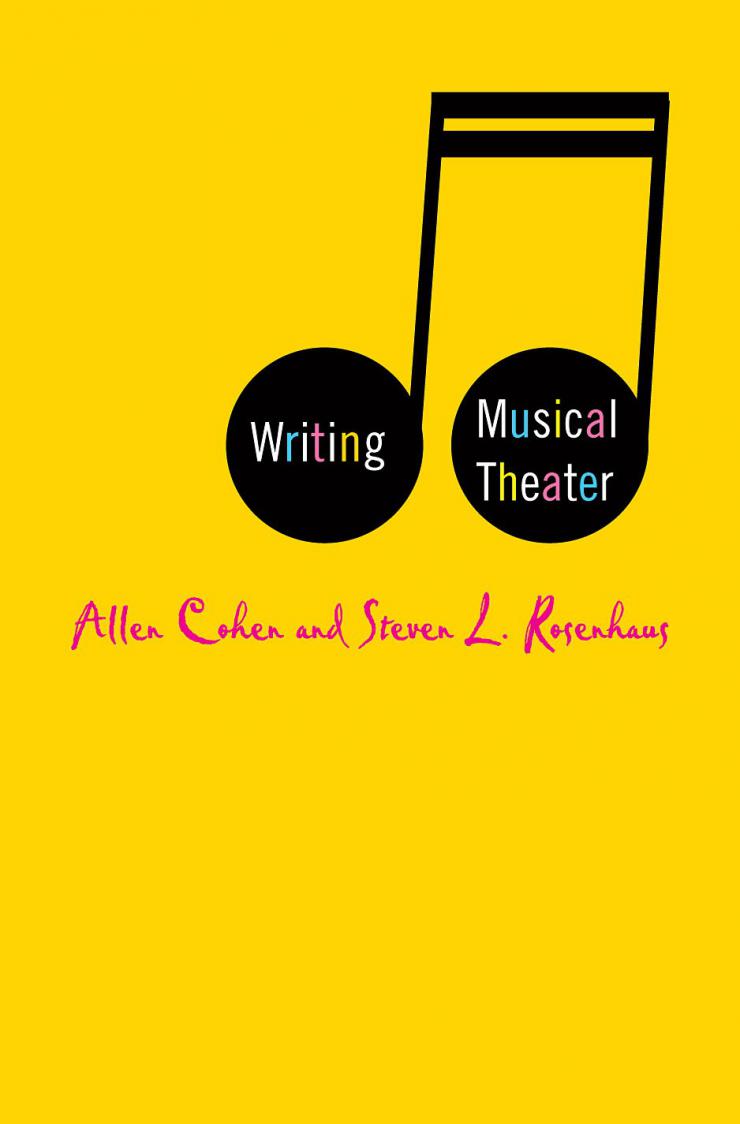
Donald: In Writing Musical Theater, you and Allen Cohen discussed a hypothetical musical based on The Prince and the Pauper, a source you adapted in your own show, Critic.
Steven: I have a soft spot in my heart for that story. It was one of the stories I grew up reading. It also was one of the few old, black-and-white movies they would show on late night TV that my parents would let me watch when I was a kid.
Donald: How did you and librettist Jay Michaels come to write Critic?
Steven: I met Jay through his girlfriend at that time. She knew me when I was music directing a community theatre group. When she found out I was a composer, she said, “My boyfriend would be interested in working with you.” Jay told me about a project he was putting together called The Bard Off-Broadway. He used scenes and dialogue from a variety of Shakespeare plays, took them out of context, and created a new show. To tie it all together, he solicited pre-existing songs from various songwriters that he knew, and added me to the mix. He had taken some of my pop songwriting at that point, and those seemed to work the best in the show.
We were talking one day, and he asked, “Do you want to collaborate on a show?” I said, “It would be a great idea for us to work together.” We tossed ideas back and forth, and he was the one who brought up The Prince and the Pauper! Jay’s idea was to update it: instead of a prince, it’s a drama critic. Instead of a pauper, it’s an actor. It made sense to me. You know how The Producers seems to be set in the 1960s? That’s sort of the time frame for our show as well. It’s New York City, but it’s in time limbo with a push toward the sixties, maybe 1970s. There’s nothing specifically tying it to an era—but you can tell by the way characters behave, what the time period could be.
Donald: Is that what inspired the score?
Steven: No. It was me saying, “This is my first real show! I’m going to show what I can do!” I made so many mistakes—not so much in the music, but almost entirely in the lyrics.
In musical theatre, songs are supposed to grow out of the character, out of the story, out of the time and place, and maybe most importantly, out of the moment.
Donald: Lyrics are almost always the most difficult to write, aren’t they?
Steven: Yes, and I learned a lot in the process! I learned that musical theatre lyrics are absolutely not pop song lyrics.
Donald: What is the difference?
Steven: Pop songs are what are usually described as three-minute universes. They’re self-contained for the most part. Unless it’s the Who’s Tommy, which was meant to be performed as a theatrical event. Other than that, every song in pop music is considered to be its own entity. In musical theatre, songs are supposed to grow out of the character, out of the story, out of the time and place, and maybe most importantly, out of the moment.
Donald: Which can be done in a pop idiom.
Steven: Yes. You can have a musical theatre-style song in pop music, and you can do the reverse in musical theatre. But that’s talking about style. I’m talking about intent. The intent of a song in musical theatre is different. As a result, it has to come out of the elements I mentioned.
Donald: My favorite song from Critic is a ballad, “I Could Love You.”
Steven: I think that’s the best song in the show, frankly.
Donald: As I remember, the “punch line” of the lyric is where you substantially changed the melodic line, and introduced a new idea.
Steven: It’s not so much “changing the melody” as it is adding a [new] melody on top of the original one. This flips the meaning of all the words. The drama critic [who at this point is mistaken as the actor by the actor’s girlfriend] is singing to the girlfriend. He’s not singing directly to her though; it’s in his head.
In another time
In another place
With another name
With another face,
I could love you.
That’s kind of wistful and heartrending itself. But then the actor’s girlfriend starts singing [in her own head] too. She’s looking at him and thinking to herself, “Sometimes you act like a stranger, from a different place!” All of a sudden you go, “Oh, my God!” And that was the intent. I’ve received bad and good comments about my music over the years. The best reaction I have ever gotten though was at performances of Critic right after that song; I have seen people crying.
Donald: That tells you that you did your job!
Steven: Exactly. I have evoked an emotional response. To me, that means that those characters are resonating with the audience. And that is really hard to do. So for me to pull that off made me feel really good.


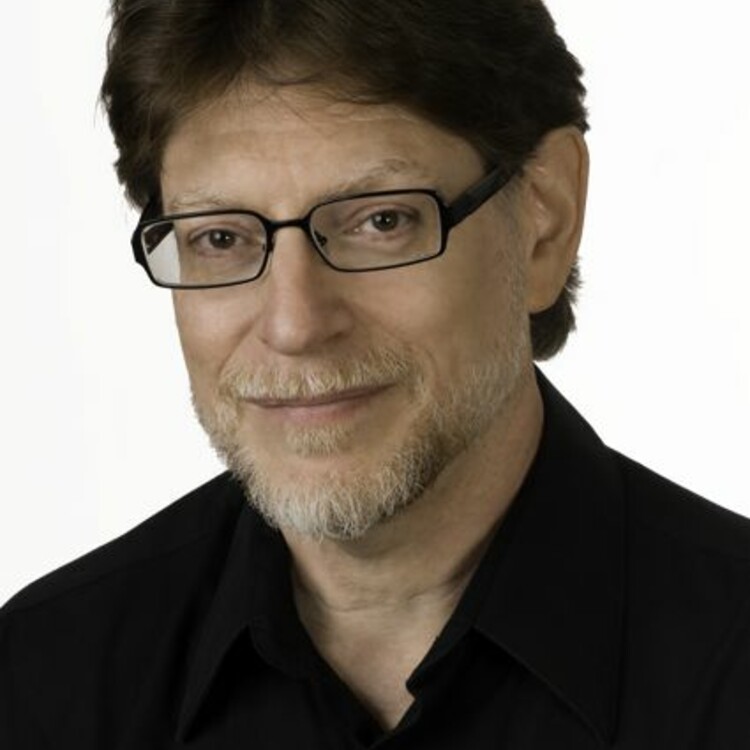
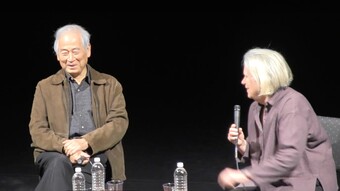


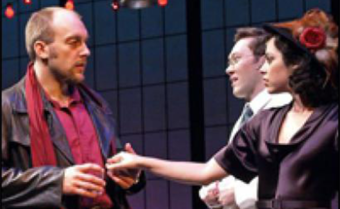


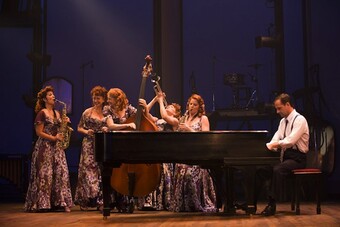

Comments
The article is just the start of the conversation—we want to know what you think about this subject, too! HowlRound is a space for knowledge-sharing, and we welcome spirited, thoughtful, and on-topic dialogue. Find our full comments policy here